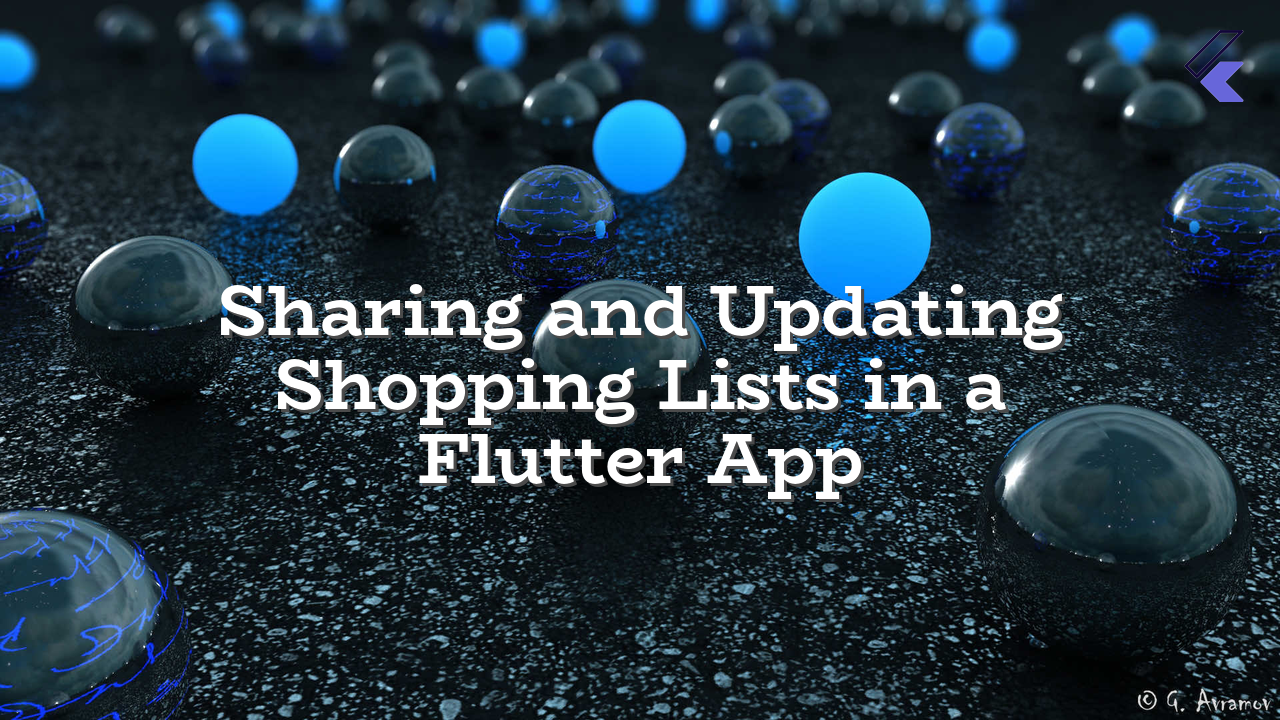This article details how to share a shopping list with another user in a Flutter app, allowing updates to the shared list on both devices. It explores different approaches and potential errors, focusing on solutions.
Understanding the Requirements
The goal is to create a system where a user can share a shopping list with another, and any changes made to the shared list by either user are reflected in real-time on both devices. This requires a centralized data store that handles concurrent updates.
Choosing a Backend Solution
A key component of this functionality is a server-side solution to handle shared data. Local storage on the device will not be sufficient to facilitate real-time updates and shared editing.
Database Option (Recommended)
Employing a cloud-based database service (like Supabase or Firebase) is essential. These services provide a centralized location for the shared shopping list, handling data consistency and real-time updates.
- Supabase: Offers a robust and relatively straightforward solution for handling real-time updates. It is cost-effective for early-stage development and offers a rich set of features.
- Firebase: Another popular option with a simpler setup for smaller projects. This may require a more significant setup for larger projects.
Implementing the Solution with Supabase
This example uses Supabase. To set up Supabase, follow their instructions. Ensure you’ve established a connection with your Supabase project in your Flutter app.
Data Model
Create a database table (or collection) to represent shopping lists. The structure should include:
- List ID (unique identifier)
- List Items (array of items with name and checked status)
- Shared with user IDs (array of user IDs)
Sharing a Shopping List
- Server-side Logic: When a user shares a shopping list, update the database’s shared user IDs.
- Client-side Logic: The application’s client sends the new list items to the database through the Supabase client.
Real-Time Updates (Supabase)
import 'package:supabase/supabase.dart';
// ... your imports and variables
final SupabaseClient supabase = SupabaseClient(url, anonKey);
// Update a shared list item.
Future updateSharedListItem(String listId, int itemId, bool isChecked) async {
try {
final response = await supabase.from('shopping_lists').update({
'list_items.$itemId.checked': isChecked,
}).eq('id', listId).maybe('id', 'some other value');
} catch (e) {
// Handle error (e.g., network issues or database errors).
// Display an appropriate error message to the user
}
}
Potential Errors and Solutions
- Network Issues: Implement robust error handling to catch network problems and display informative error messages to users. Consider retry mechanisms.
- Database Errors: Your error handling should gracefully handle cases where the database is unavailable, lists not found, or unauthorized requests.
- Concurrency Issues: Concurrent editing by multiple users can lead to inconsistent data. Supabase’s real-time capabilities mitigate these, but use suitable transaction or optimistic locking patterns where needed.
- Authentication Errors: Proper authentication is crucial to prevent unauthorized access or manipulation of shared lists.
Remember to implement appropriate user authentication and authorization to control access to shared lists.
By utilizing a cloud-based database service and following these strategies, you can effectively create a shopping list-sharing feature in your Flutter application.

